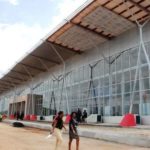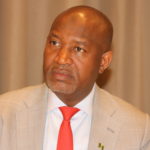
Nigerian airlines have called on the federal government to review its tax policy for the sector as well as the cost of aviation fuel, in order to reduce cost of flight operations and ensure they remain in business.
The operators said many airlines that went under in the last few years were due to high cost of operation, including high taxes and high cost of aviation fuel.
The airlines said cost of flight tickets would also reduce if they pay less taxes and spend less on aviation fuel, which is known as Jet A1, so that more Nigerians can travel by air, especially now road travel is fraught with insecurity. In addition, the operators said they spend huge resources on aviation fuel because of its arbitrary costs, which according to them does not reflect the cost of crude oil, but negatively affect long-term planning by the airlines.
Speaking on behalf of the airlines, the CEO of Aero Contractors, Captain Ado Sanusi, said there was need for government to review its policy on aviation fuel, noting that although supply was deregulated, the government could take actions to ensure that supply is regular and prices lower than what obtains currently.
“The first government intervention to reduce cost of operation should be in the supply of fuel, which over the years government has been striving to bring the prices down.
“This is critical because about 40 per cent of the cost of operation is almost on fuel, Jet A1. So we can look at it and ensure that the fluctuation in the prices is not much.
“Look at the situation now. The prices go from N198 to 220 per litre. So if we can have a constant supply of Jet A1 at constant price, airlines will know how to plan their budget and how they can bring down the cost of ticket based on the lower cost of aviation fuel,” Sanusi said.
He noted that in most countries the price of Jet A1 is, “very dependent on the price of crude oil but in Nigeria it is dependent on the landing cost of imported product.”
The Aero CEO said crude oil price could be steady for the next six months, but Jet A1 price would be fluctuating, stressing the need to streamline prices.
He said although Jet A1 had been deregulated, the government could persuade the importers to ensure constant supply of the product or government could be importing the product and selling to marketers.
Another factor that has influenced the high price of tickets, the airlines said, was the high taxes operators pay, so they urged government to tackle the problem of multiple taxation.
“Government has done very well in the area of taxes by reducing some and looking at removing VAT. I hope it has done that already. But the most important thing government should tackle is multiple taxation.
“The federal government should look at it. The last time they reviewed taxes in aviation was a very long time ago and I think they should look at it and reflect the reality on ground.
“This is because if they continue to heavily tax the airlines it will continue to impact on their finances and you see that some of them are dying. There is something definitely wrong somewhere.
“High taxation is one of the root causes of the reason our airlines are dying; so government can help to save the airlines by reviewing downwards the taxation levied on them.”
Another factor he said that has effect on the cost of flight operation was bird strike and non-clearing of runways, which gives rise to incidents that lead to high maintenance cost.
He pointed out that frequent bird strikes destroy aircraft engine and when the runway is not swept regularly objects destroy aircraft tyres.

According to him, replacing these engines and tyres cost a lot of money to the airlines, which means they have to increase price of tickets in order to generate money to pay for spares replacement and general maintenance.
“If, for example, the runway is not swept regularly and the birds are not controlled and the aircraft suffer from bird strike and objects on the runway destroy the aircraft wheels, these will increase maintenance cost and eventually affect the price of the tickets.
“This is because the moment I have increased my cost I have to increase my revenue. Otherwise, the airline’s finances will be affected. So the airport management company has to sweep the tarmac and the runway, chase the birds away so that the aircraft wheels do not suffer damage and the engine does not pick birds.
“These are the things that will lower the airline’s cost. When the cost of operation is lowered, the airline will definitely lower the cost of its tickets,” Sanusi added.
SANUSI






